Turkestan, spiritual heartbeat of Turkic world, enchants with its historical riches
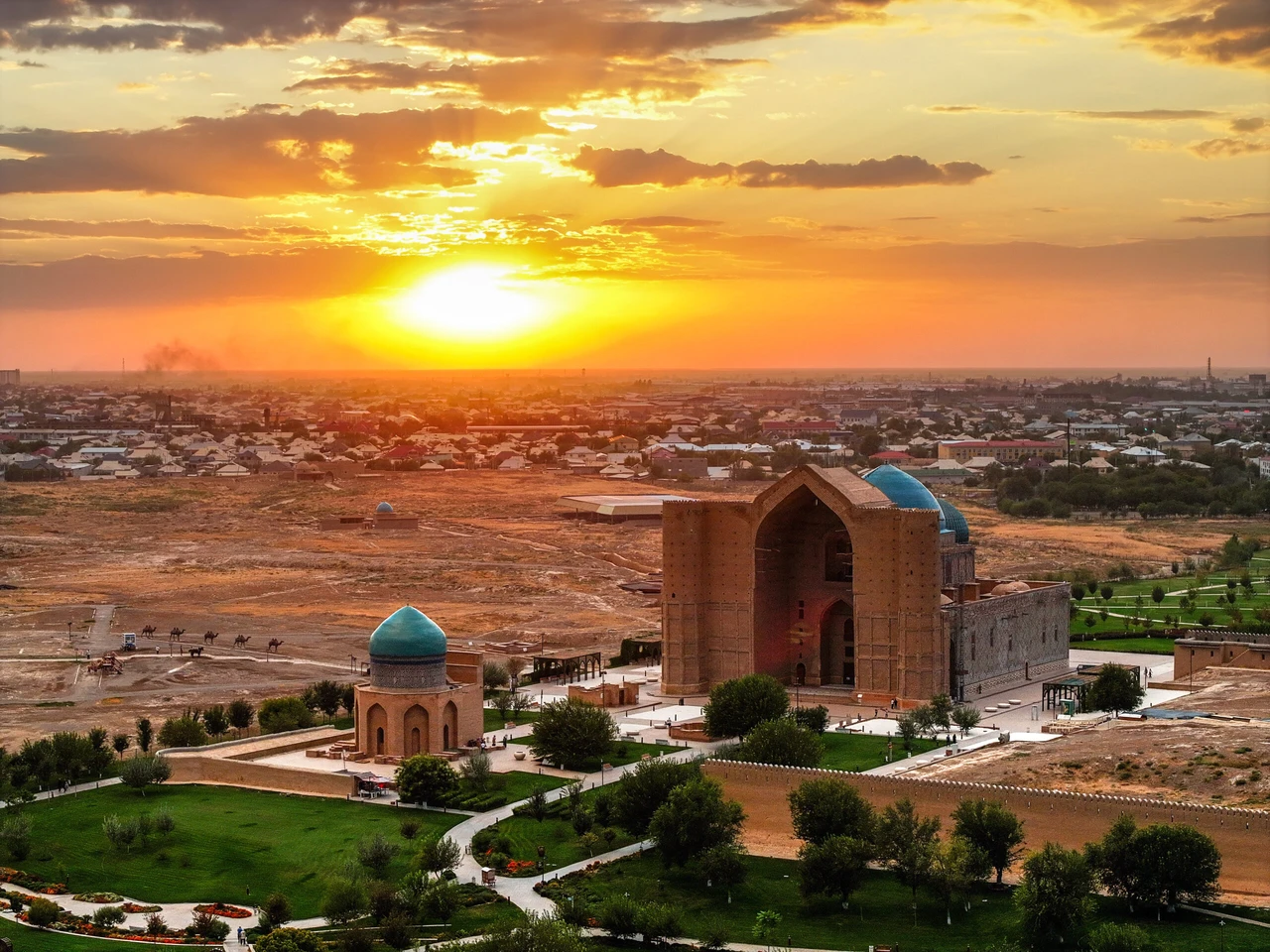 A view of the Mausoleum of Khoja Ahmed Yasawi, one of the significant historical landmarks in the city of Turkestan, which was declared the "spiritual capital of the Turkic world" by the Presidents of Turkic Republics at the Cooperation Council of Turkic-Speaking States, in Kazakhstan, October 10, 2024 (AA Photo)
A view of the Mausoleum of Khoja Ahmed Yasawi, one of the significant historical landmarks in the city of Turkestan, which was declared the "spiritual capital of the Turkic world" by the Presidents of Turkic Republics at the Cooperation Council of Turkic-Speaking States, in Kazakhstan, October 10, 2024 (AA Photo)
Kazakhstan’s city of Turkestan has been hailed as the “Spiritual Capital of the Turkic World” by the presidents of the Turkic Republics within the Cooperation Council of Turkic-speaking states. This historic city, renowned for its rich cultural heritage, has become a magnet for both domestic and foreign tourists.
With a history dating back 2,000 years, Turkestan, formerly known as “Yesi,” is renowned as the birthplace and home of Khoja Ahmed Yasawi, a revered figure in Turkic spiritual tradition.
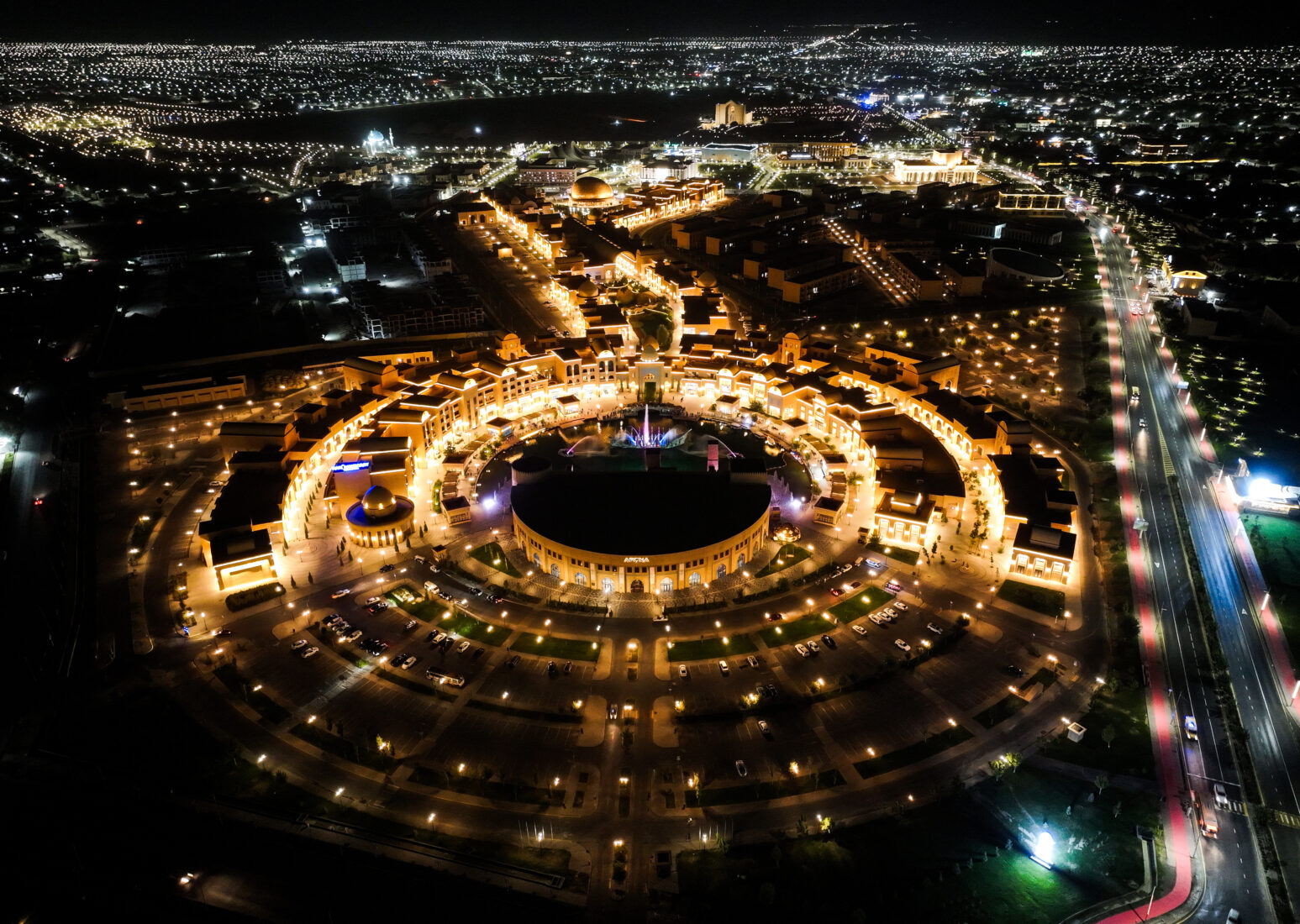
Architectural marvels and UNESCO heritage sites
The region of Turkestan is not only home to the famous Khoja Ahmed Yasawi Mausoleum but also features key architectural landmarks such as the Arslan Baba Tomb and the ancient city of Otrar, which symbolize the early traces of Islam in the area.
The Yesevi Mausoleum, built in the 14th century by Timur, was the first historical site in Kazakhstan to be inscribed on UNESCO’s World Heritage List. Restored by Türkiye in 1993, it stands as one of the most magnificent structures in the city. In addition to the mausoleum, the Khoja Ahmed Yasawi International Kazakh-Turkish University, founded in 1992, holds significant importance for the city.
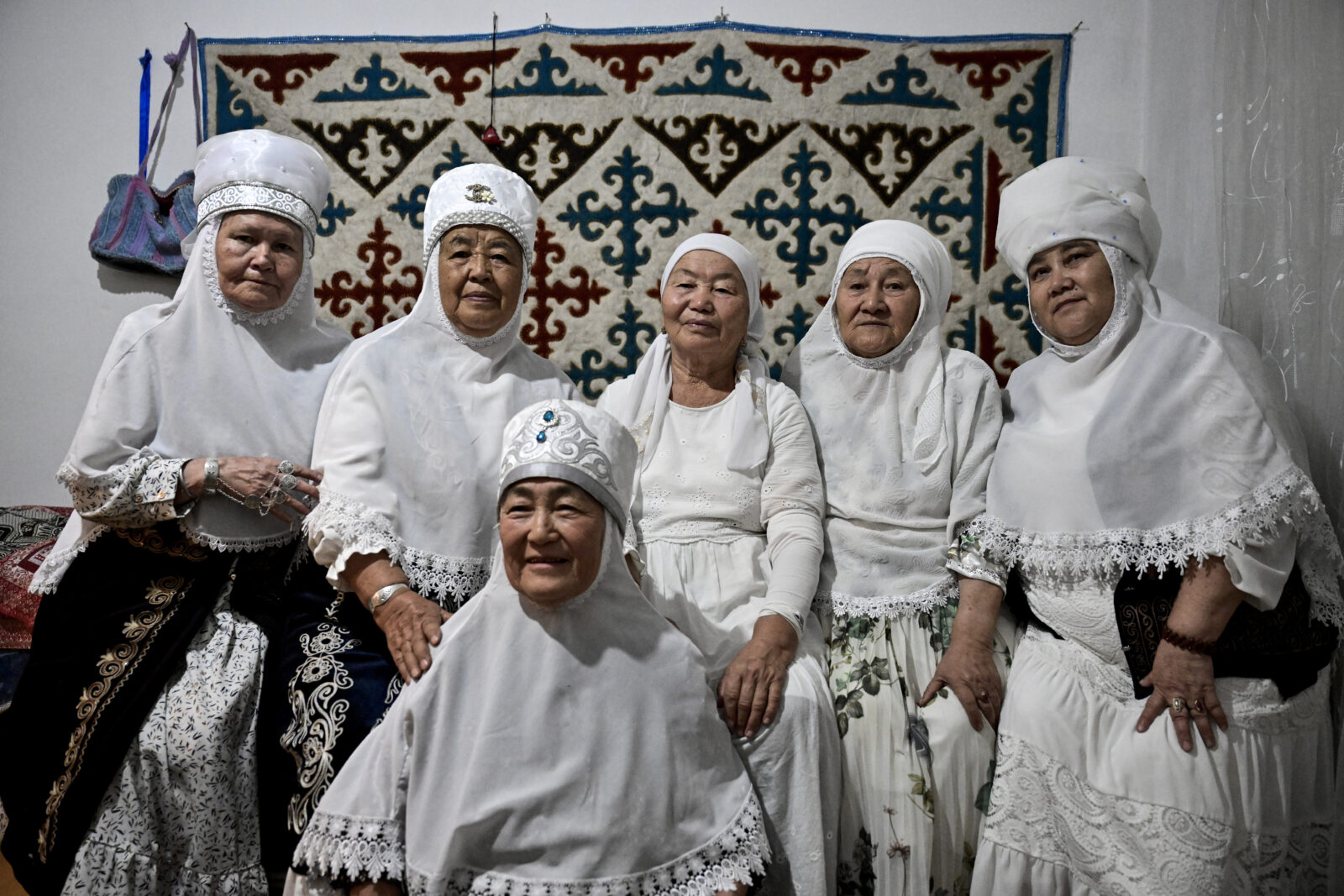
Modern development and Turkish contributions
The modernization and development efforts in Turkestan owe much to the contributions of Turkish entrepreneurs. Several historical landmarks in the city, including the Yesevi Mausoleum, have been restored by the Turkish Cooperation and Coordination Agency (TIKA).
According to data from the Turkestan Regional Department of Culture and Tourism, 120,344 visitors stayed in the city last year. In the first six months of this year, 59,248 people were recorded to have stayed, while the Khoja Ahmed Yasawi Mausoleum alone attracted 532,285 visitors over the past nine months.
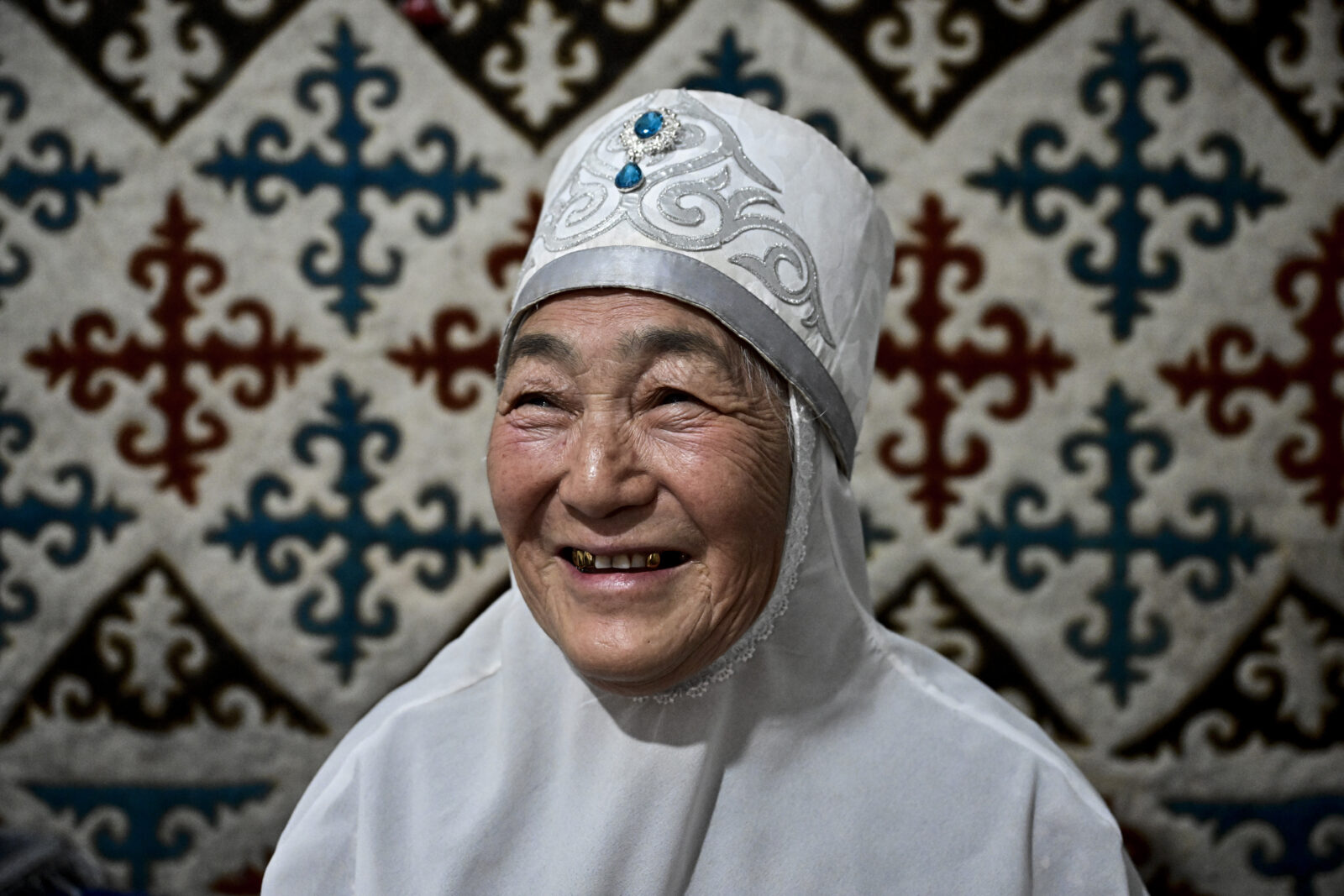
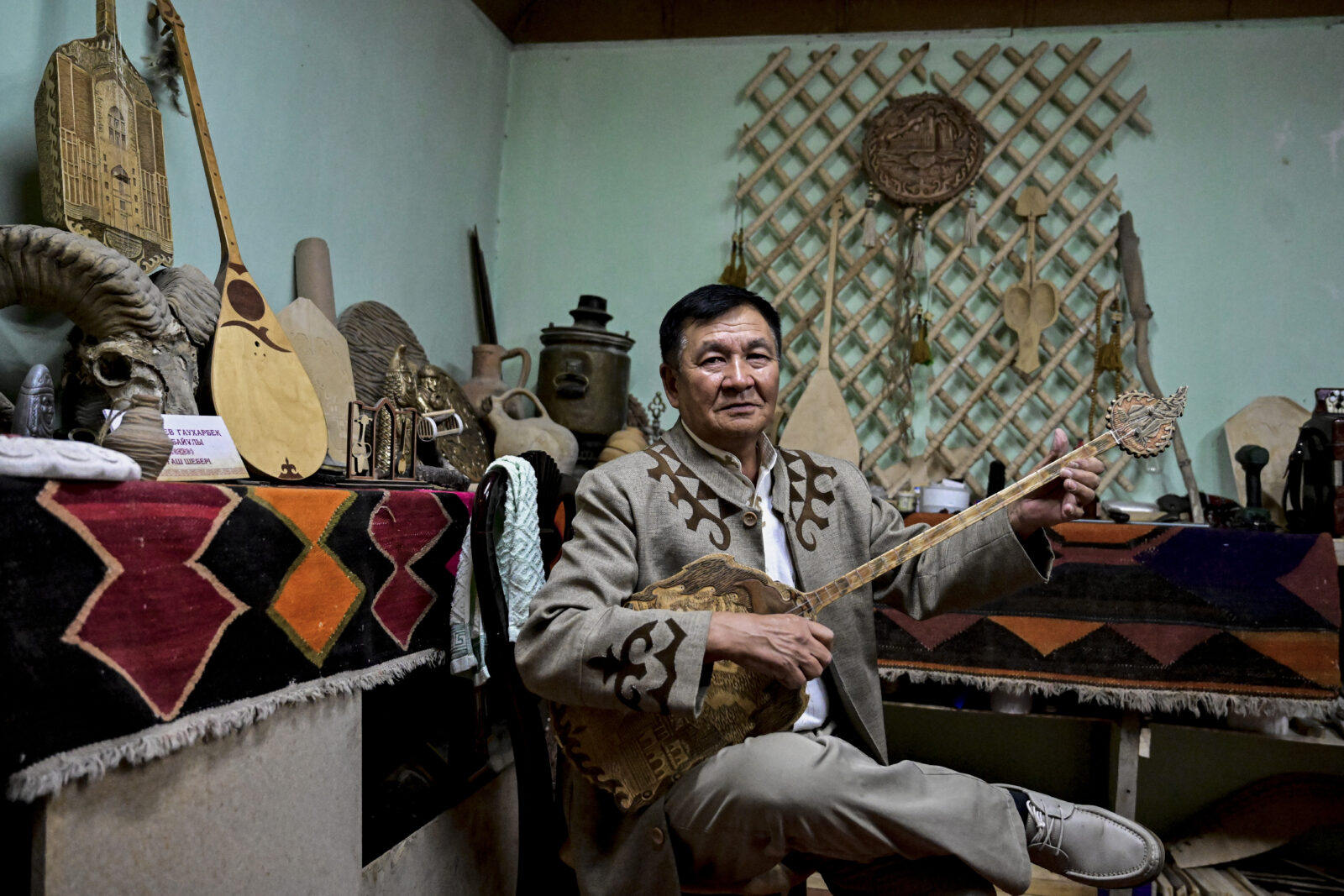
Turkestan: Region witnessing transformation of great civilizations
Eren Akdeniz, a lecturer in the history department at Khoja Ahmed Yasawi International Kazakh-Turkish University, emphasized the significance of Khoja Ahmed Yasawi, also known as the “Pir-i Turkestan,” for the Turkic world, noting his spiritual and historical importance.
Akdeniz also highlighted the proximity of Turkestan to the legendary Otrar disaster recounted in Mongol chronicles. “Additionally, there are significant settlements in the region such as Sauran, Atabay and the Kara Daglar near Kentau. Undoubtedly, Turkestan is a magnificent region that has witnessed significant events and the transformation of great civilizations throughout history,” he said.
He further noted that the Oguz tribe, to which Türkiye’s Turks belong, settled along the Syr Darya River, and many Oguz cities that still exist today can be found in this region. “Just outside Turkestan lies a monument to Dede Korkut. According to accounts, his grave was once located on the banks of the Syr Darya, but it was lost to a flood.
Nevertheless, Dede Korkut is a figure deeply revered not only in Türkiye but across the entire Turkic world, and it is believed he was laid to rest in this region. Turkestan, which has produced figures of historical and cultural significance for both Turkic and world civilizations, is a place that should be visited at least once in a lifetime.”
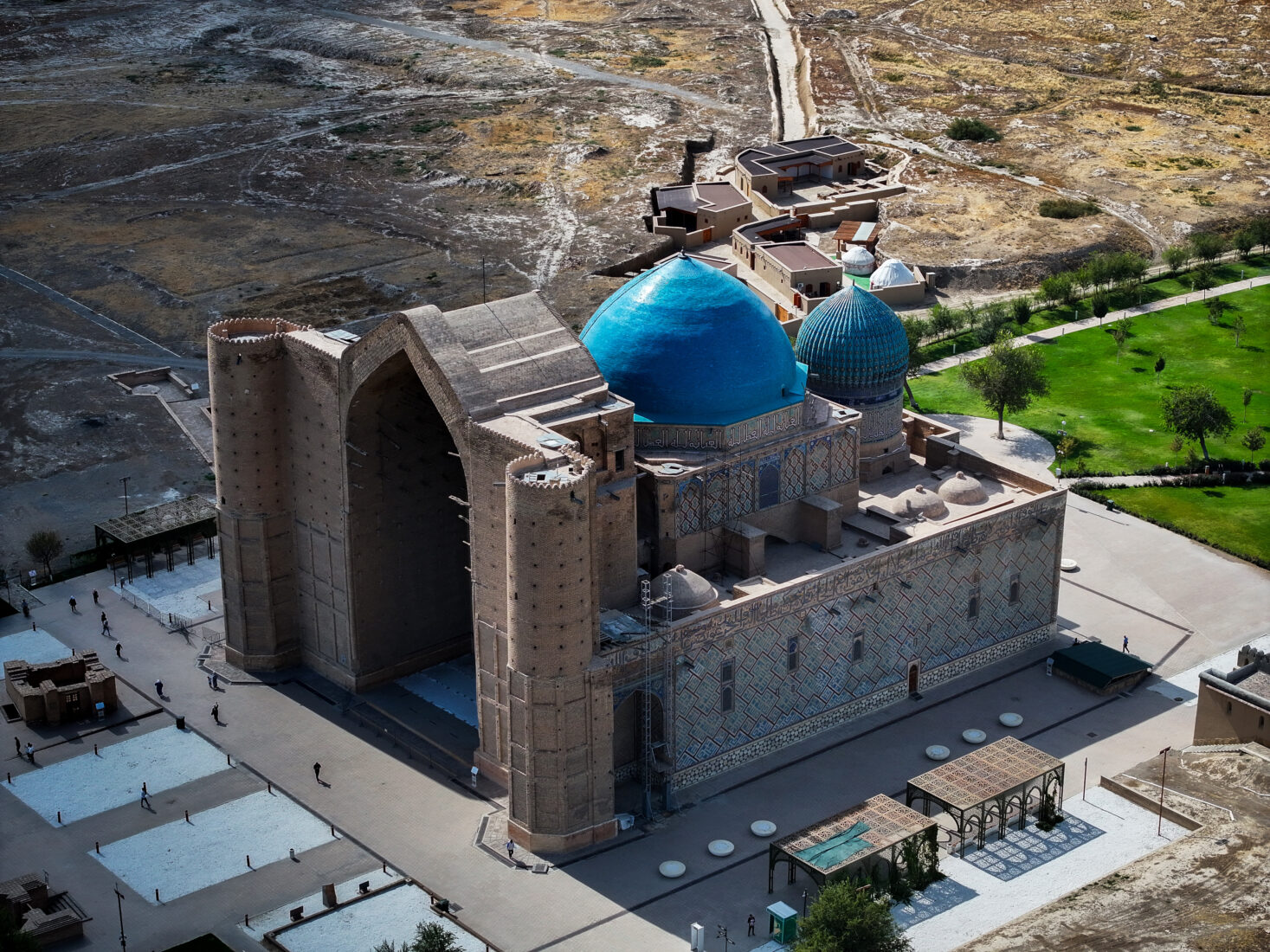
Mausoleum construction: No water used in building materials
Tour guide Ismail Omer Ali shared the importance of Khoja Ahmed Yasawi, whose tomb is located in Turkestan. He emphasized Yesevi’s pivotal role in the Turkification of Anatolia.
Ali recounted how Yesevi, who received a religious and spiritual education from Yusuf Hemedani, went on to train numerous scholars himself.
“Khoja Ahmed Yasawi contributed to the shared customs and traditions of Turks across four continents,” said Ali. “At the age of 63, he felt he had lived long enough, not wanting to exceed the lifespan of Prophet Muhammad. He had a retreat built and reportedly lived there for another 60 years. During this time, he wrote the ‘Divan-i Hikmet,’ a major work of spiritual literature.”
Ali also noted that nearly 200 years after Yesevi’s death, Timur, the founder of the Timurid Empire, constructed the mausoleum in his honor. “The mausoleum stands 41 meters tall and meets the needs of all visitors. It contains a kitchen, library, and madrasa, all of which are still in use today. Interestingly, when construction began in 1386, no water was used in the materials; instead, bricks were baked and fermented with mare’s milk and camel milk.”
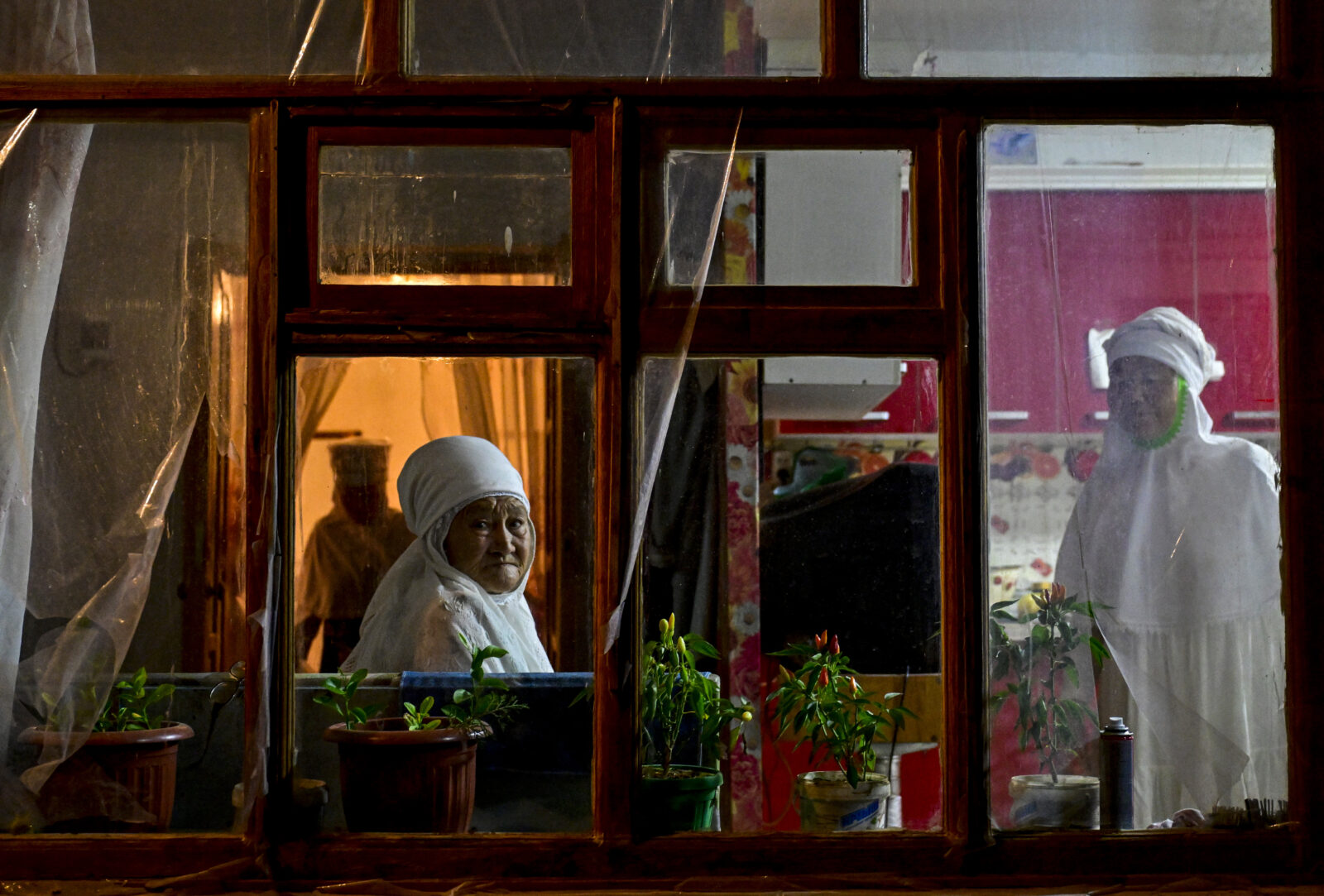
‘Turkestan welcomes all Turks’
Nurakhmetova Karlygash, a guide at the Khoja Ahmed Yasawi Mausoleum, emphasized the significance of the mausoleum for the city. “Thanks to Khoja Ahmed Yasawi’s Mausoleum, our city is even more beautiful. We invite all Turks to visit our city and the mausoleum,” she said.
Turkestan, as the spiritual capital of the Turkic world, captivates visitors with its rich history, stunning architecture, and cultural significance. Home to landmarks like the Khoja Ahmed Yasawi Mausoleum and ancient sites such as Otrar, it remains a key destination for those exploring Turkic heritage.



